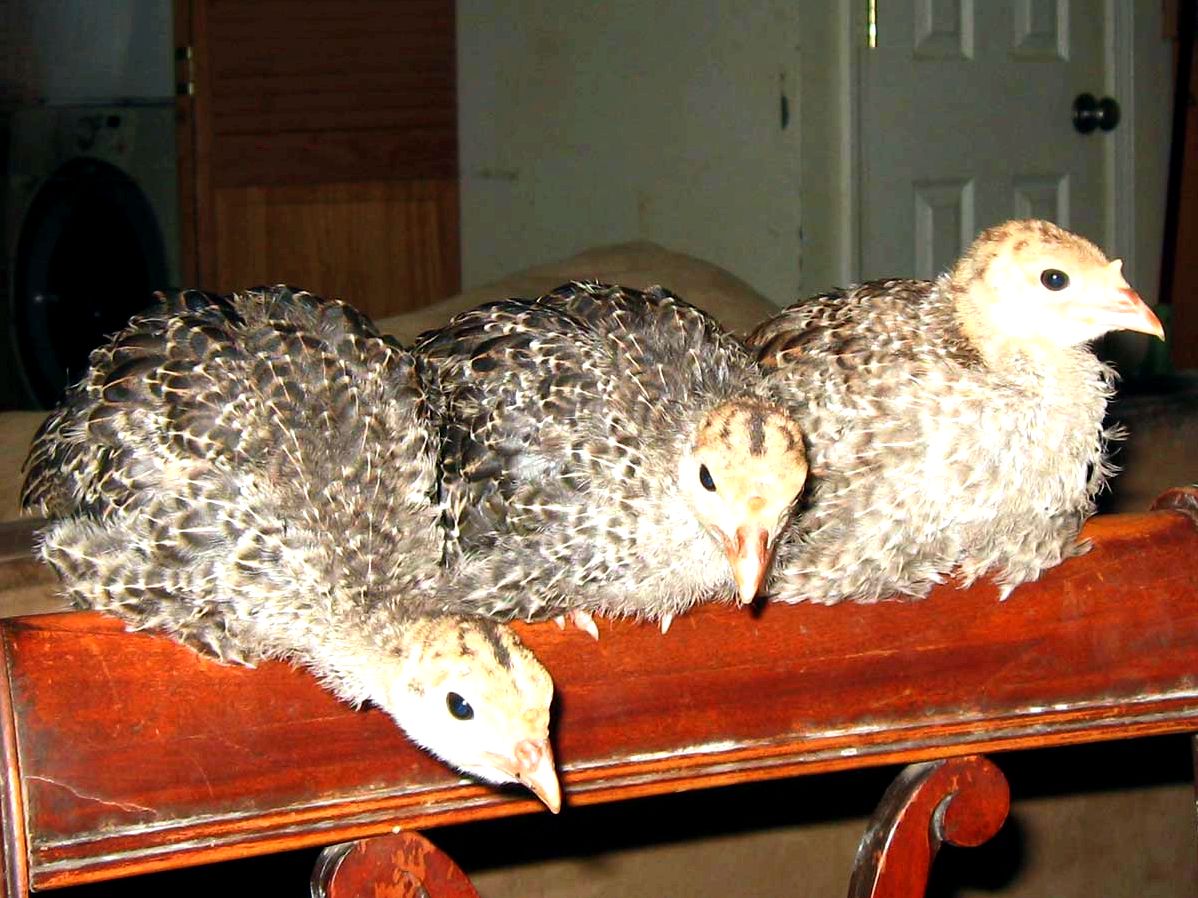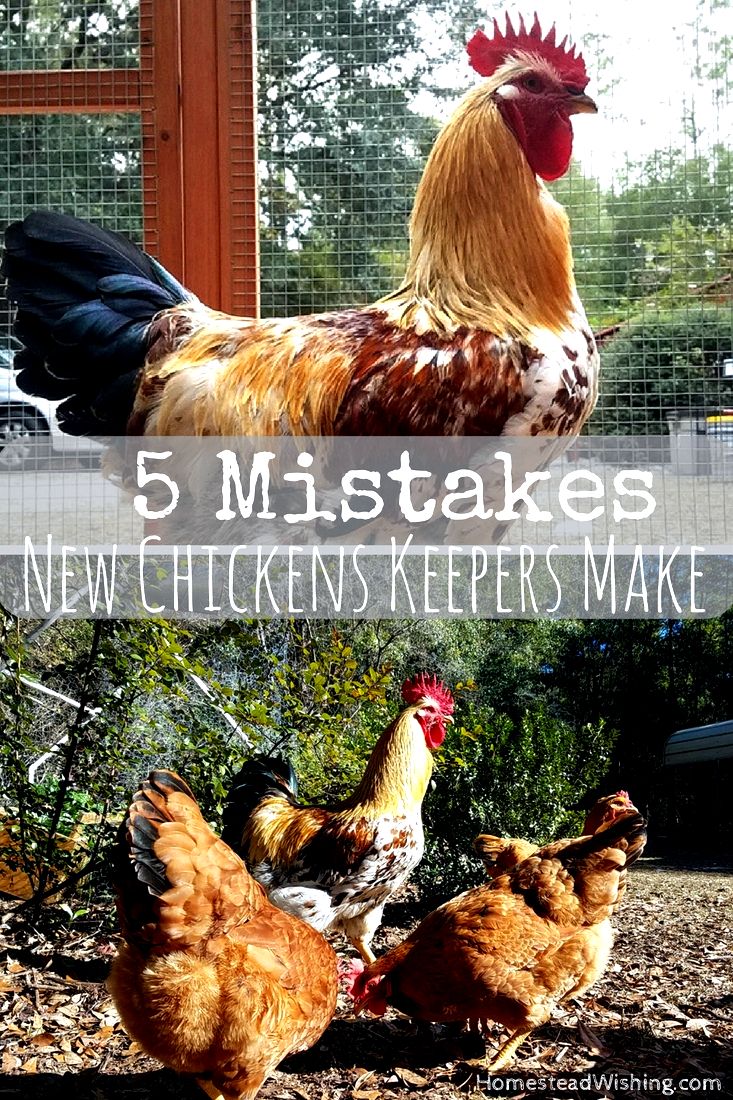
-
Should you ask any chicken keeper, they’ll most likely provide you with a listing of things they’d did
differently. Everybody makes mistakes at some point, a number of them are harmless,
but others can result in your wild birds getting seriously hurt, or perhaps wiped out. Hopefully you are able to
study from a few of these common errors, and stop them from going on.
- Not realizing an ill bird over time
- Using toxic chemicals round the coop
- Buying wild birds from your unknown source/dishonest breeder
- Overcrowding and/or overheating your chicks within the brooder
- Keeping wild birds inside a dirty/poorly ventilated/dark coop
- Not predator proofing your coop
- Not buying/creating a large enough coop
- Not choosing the right breed
- Be ready
It is crucial to look at your wild birds everyday to ensure that in situation you’ve got a sick or hurt bird
you will observe it over time in order to save it. Becoming familiar with your wild birds normal behavior, and
observing them daily may be beneficial. Your wild birds all ought to be active and also have nice vibrant
eyes, healthy red or pink combs, as well as their down ought to be clean, glossy and well preened.
(Bear in mind there are exceptions to those latter while your wild birds are dealing with
their annual molt).
Signs and symptoms of ill wild birds include:
Moving gradually, and never thinking about food or treats
Refusing to leave the coop each morning
Refusing to eat or consuming
Huddling around the roost or floor throughout the day with closed eyes
Mind pulled tightly in
Droopy wings and tail
Heavy or strained breathing
Decreased egg production
Straining
Acting lethargic
Ruffled down (Bear in mind that hens will sometimes ruffle their down when cold)
Pale or crimson comb, and wattles
Cloudy, leaky, inflamed, or watery eyes
Sneezing, wheezing, or coughing
Inflamed legs or ft
If you have an ill or hurt bird, it is advisable to separate it as quickly as possible. Inspect the
ill wild birds weight, vent, face, mouth, and nostrils and take a look for bloodstream, scabs, along with other signs
of injuries. Also, look for mites and lice, and expect the wild birds legs for scaly leg mites.
Typical appearance of an ill bird. This hen probably died of some type of internal injuries.
You’ve got a rat issue in the coop, and you will find some annoying weeds growing inside your wild birds
run. Well the best factor to complete could be enhance the rat poison, and herbicides right? Wrong!
Most chemicals, pesticides, herbicides, and pest poisons, are deadly for your wild birds. It’s best
to prevent using such products around your coop, run, or anywhere that the wild birds range. Even when
you place out rat, or any other rodent poisons were you’re certain your wild birds won’t have it, your wild birds
might find and consume the dead or dyeing rat, by which situation the wild birds may consume the poison this way.
Should you spray weeds or grass around your coop, or anywhere that the wild birds range, they might eat
of computer, and consume the harmful chemicals, which could cause illness or dying for your wild birds. It is advisable to use
such chemicals sparingly with caution around your flock.
Buying wild birds from unknown sources is extremely dangerous for a lot of reasons. For just one factor you do not
know what you’re getting. The wild birds might have health problems or carry deceases that won’t
be apparent initially. One more reason to not buy wild birds from unknown sources would be to avoid
dishonest breeders. While there are plenty of excellent breeders with very good quality wild birds,
there are several that either aren’t experienced in the wild birds they raise, or simply plain
deceitful. For additional on buying wild birds, look at this article:
https://www.backyardchickens.com/a/tips-for-purchasing-wild birds-from-a-breeder
When adding wild birds for your flock, it may be beneficial to quarantine them for a while before
adding these to all of your flock.
https://www.backyardchickens.com/a/…frequently-undervalued-part-of-raising-chickens
Lots of people result in the mistake of keeping chicks in a tiny brooder until they’re well
feathered out. This can be a mistake for a lot of reasons, for just one factor, chicks grow very rapidly, and
will outgrow a little brooder (like a plastic storage tote) very rapidly. The overall rule of
thumb for the way much space your chicks will require is no less than 1/2 a sq feet for that first
week, 1 sq feet for that second week, and than increase that each week by 1 sq feet. (retain in
mind that exist away with slightly less space for bantams, quail, along with other small wild birds,
and you’ll need slightly in addition to that for big wild birds for example turkeys and other poultry). No, this
does not necessarily mean you need to provide your wild birds a larger brooder every week, but consume to
consideration before buying your chicks, just how much brooder space they’ll need because they
grow.
Observing mother hens has convinced me that baby chicks don’t need just as much heat once we are
frequently told. I’ve come across many a mom hen out scratching together with her chicks on 20F and 30F degree
mornings, as well as one hen and her 2 week old chick out eating on the 5F degree morning! Don’t
misunderstand me, chicks do have to be stored warm, however they don’t have to roast within heat lamp,
all time. Chicks by helping cover their a mom hen, would get out there and scratch for a couple of hours, and than
come and warm-up before eating out and scratch again. As they age, time spent
out eating and scratching increases. Chicks which are stored inside a heated brooder constantly
have much less ability to tolerate cold temps, and frequently are poor winter layers. When establishing or
constructing your brooder, make certain that the baby’s possess a place where they are able to escape
from underneath the heat. Observe them carefully and make certain they’re comfortable. As lengthy as
you aren’t getting temps 30F’s or below, your chicks should anticipate to leave the brooder
when they’re fully feathered out.
This can be a common mistake. Keeping wild birds housed in dirty, poorly ventilated, and dark coops
can result in many health problems for example respiratory system problems, mite/lice infestations, greater
inclination towards frost bite, decreased egg production, and a number of other health problems and
deceases. Make certain to maintain your bedding clean, and alter it frequently. Make certain your coop
is well ventilated with lots of ventilation. Light can also be important. Don’t keep the wild birds cooped
Don’t keep the wild birds cooped
in a dark coop without having sun light.
Listed here are a few articles about them:
https://www.backyardchickens.com/a/bedding-part-2-maintaining-your-bedding
https://www.backyardchickens.com/a/…-go-out-there-and-cut-more-holes-in-your-coop
Good, clean bedding is essential.
Your about to construct your coop. Chicken wire may be the apparent factor to make use of right?
Regrettably it most likely is, but it’s and not the best factor to make use of. Predators can certainly tear through it,
and bear off your defenseless wild birds. While chicken wire will work for interior use, as well as on coops
where predation isn’t an issue, it’s not suggested for exterior use. Hard ware cloth (though
more costly) is a lot more powerful and safer. Bear in mind while building your coop, that nearly
everything loves a great chicken dinner, so make certain your coop is extremely predator proof.
Note: Browse the ”Coop & Run: Design, Construction, & Maintenance” portion of this
forum for additional about predator proofing your coop.
Overcrowding can result in stress, cannibalism, feather pecking, along with other issues. Chickens need
no less than 4 sq ft each within the coop, and preferably 10 sq ft of run space. Don’t forget this
is really a minimum, it is advisable to (if at all possible) a minimum of double that size. Remember, there’s no
such factor like a coop that’s too large. You might intend on getting 12 chickens initially, however, you may
wish to give a couple of more later on, so rather of rebuilding a brand new coop whenever your flock
expands, it’s wise to construct a larger coop from the beginning.
Chickens are bred for a lot of different purposes, for example meat, eggs, exhibition, etc. Before
buying your flock, decide the reason why you want chickens. Would you like them for production? Pets? Meat?
Decide carefully on which breed(s) you would like. For instance if you would like pets, do not buy a breed
noted for being flighty. Keep climate in your mind too, and choose a breed that does well where you reside.
Your wild birds can also be smart to have them familiar with you
At some point you might easily finish track of an ill or hurt bird. At these times
you won’t want to be caught unprepared. For this reason it’s good to possess a first-aid package on hands.
He are a few help links that may help you obtain a first-aid package began:
https://www.backyardchickens.com/a/…dy-and-essential-supplies-and-how-to-use-them
http://www.fresheggsdaily.com/2012/11/the-all-natural-chicken-first-aid-package.html
http://www.the-chicken-chick.com/2012/01/chicken-first-aid-package-sick-bay-be.html
I really hope this short article helps you’ve got a better knowledge about your wild birds! For those who have any queries,
comments, or want to add almost anything to their list, you can publish below, or PM me.
Thank you for studying!
Resourse: https://backyardchickens.com/articles/common-mistakes-chicken-keepers-make-and-how-to-fix-them.67667/

8 English Sentences: Find the Mistakes
Video COMMENTS:
Jim Brown: Ma'am, you used an incorrect form of grammar when you made the quote, none of these sentences are correct. It is none of these sentences IS correct.
Miss Amazon: FarmbyGardens ….I don't not know that! Thanks!
BINIJOEL V: Jim Brown Bushey
Shanil Kazani: Thank you for helping me this is a amazing video.(:
Mouhcine El Ghazali: Awesome topic and thank you for sharing with us.
Dan//: this video gives me a back to school vibe and I think I'm going to throw up
erin tomado: very good teacher. easy to understand your grammar and pronunciation
Morela Vought: Thank you so much for this lesson, very useful. Would you please explain the uses of the word ''over''?… Greetings from Argentina.
Moroccan mentality: u r the best
TheTryery: Dear Rebecca I always like your videos!
Tags: common
Comments are closed here.
